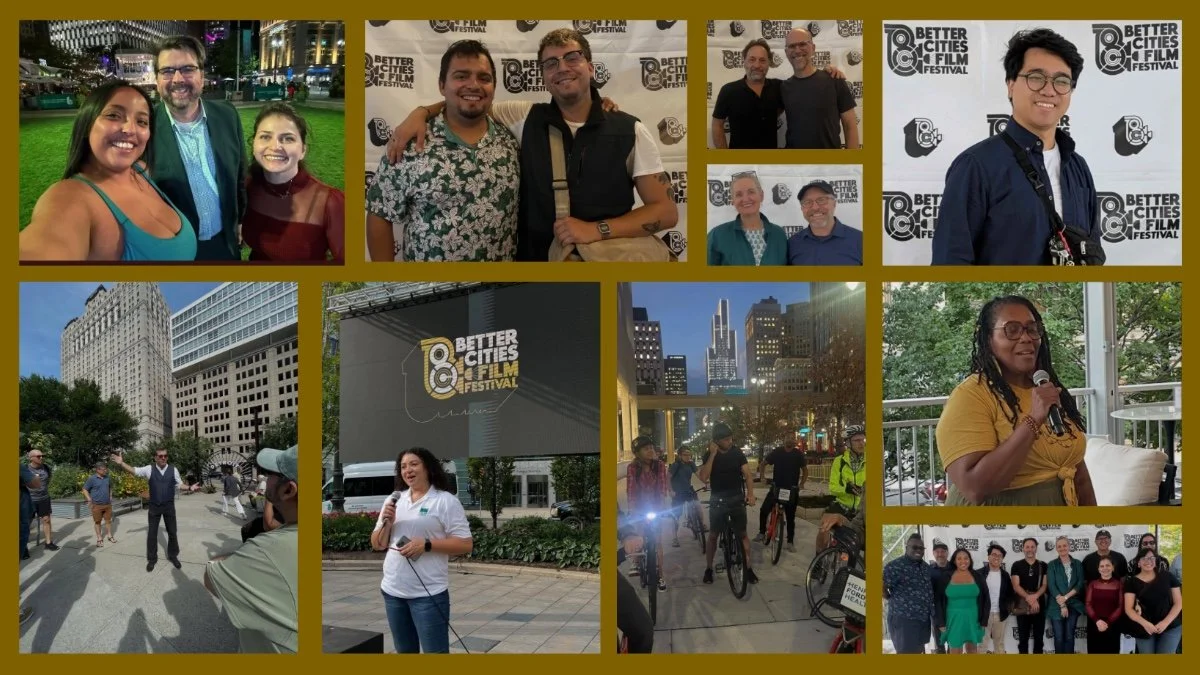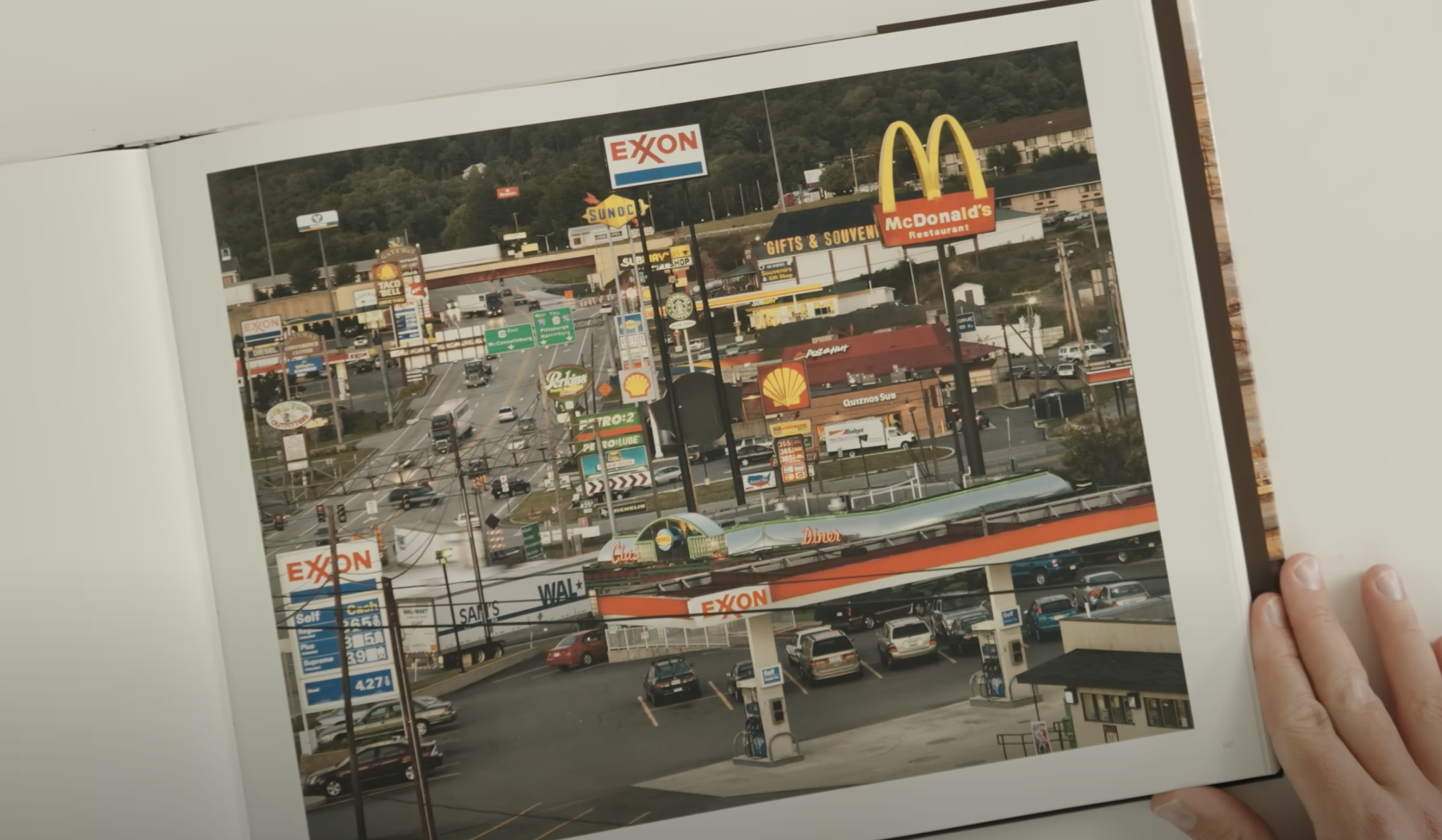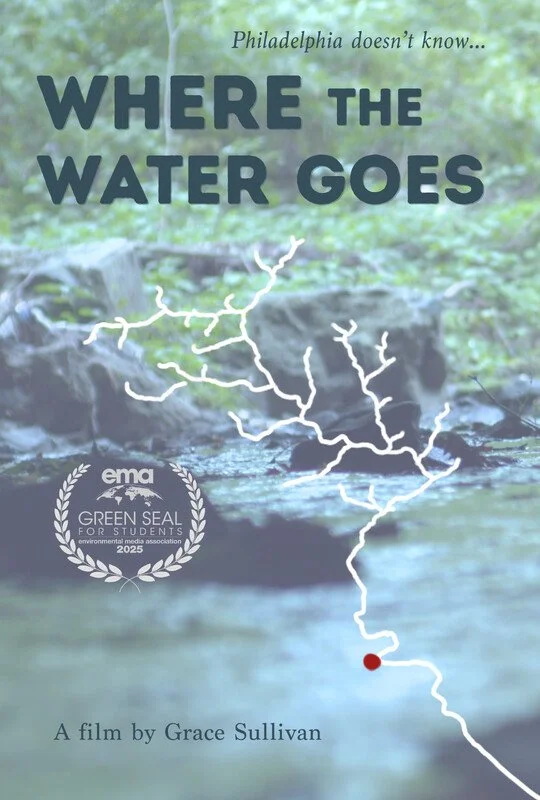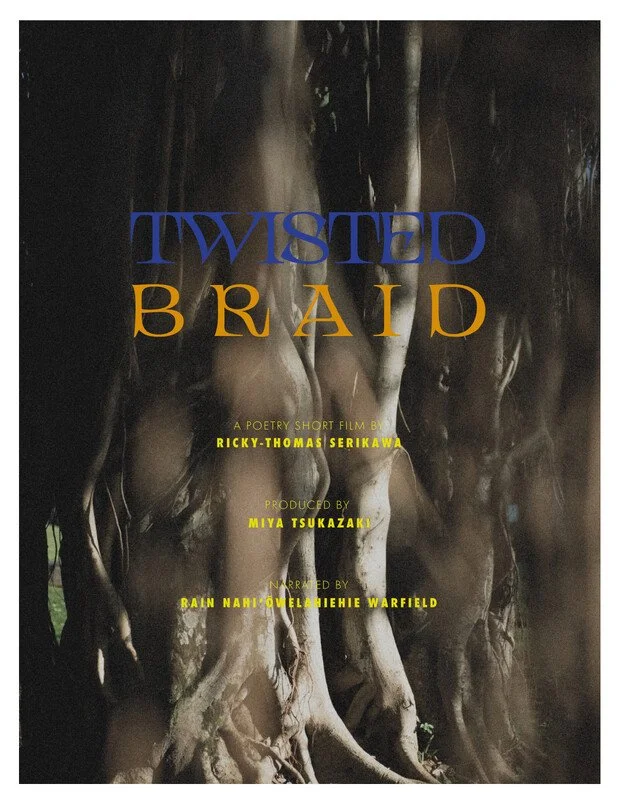WHERE STORIES BUILD CITIES: BCFF 2025 REVIEW
For four unforgettable days this September, Detroit became the stage for bold ideas and moving stories as the Better Cities Film Festival came to life in the city’s public spaces. Screenings took place under the lights of Campus Martius Park—Detroit’s central gathering place—and within the historic walls of Christ Church Detroit. Together they embodied the spirit of the festival: open, welcoming, inquiring, and rooted in community. Filmmakers, advocates, activists, planners, engineers, designers, and neighbors from across the country joined Detroiters to watch films that were more than entertainment—they were sparks for conversation, inspiration, and change. The energy was palpable, and many left transformed by what they had seen.
And the festival wasn’t confined to the screen. The “More Better” events turned Detroit into a living classroom, as audiences explored the city on bike, foot, and transit. Tours led by the Congress for the New Urbanism, the Detroit Greenways Coalition, and The Greening of Detroit opened eyes to the city’s beauty, challenges, and possibilities. Yet even with all the walking, riding, and talking, the true heartbeat of the festival was the storytelling. Film after film added fresh sparks to the citywide conversation about building better communities and cities. And among them, a few shone with special brilliance—earning awards for their artistry, their vision, and their ability to move hearts. Read on to discover the films and filmmakers we celebrated this year.
Best of Fest & Best Short Film
Your Rose Garden by Josh Peterson with music by Alexis Harte
Some films celebrate community with quiet reverence; Your Rose Garden does it with a toe-tapping beat. Josh Peterson’s short film, set to Alexis Harte’s original song, takes us into the Berkeley Rose Garden, a public space born out of the Works Progress Administration during the Great Depression. What could have been just a historical piece blossoms into a colorful meditation on how one shared garden has hosted weddings, memorials, graduations, casual strolls, and countless everyday joys for generations. Harte’s song—catchy enough to make heads bob—was inspired by overhearing someone in the park say they wished they could “buy” the garden. Harte’s response: you don’t need to buy it, it’s already yours. It’s your rose garden.
At the screening, audiences found themselves humming along, smiling at the archival photos, and reflecting on their own beloved community spaces. The joy was contagious. This is what Better Cities Film Festival celebrates—public places that become repositories of memory and identity. That’s why Your Rose Garden was honored with the Best Short Film and Best of Fest Award: for reminding us that the most ordinary public spaces can be the most extraordinary.
Best Feature Film
From Rails to Trails by Dan Protess
Dan Protess, a veteran PBS documentarian, turns what could have been a niche policy story into a sweeping epic narrated by Edward Norton. From Rails to Trails brings us into the heart of one of America’s unlikeliest social movements: converting thousands of miles of abandoned railroads into a public network of trails. Through lush cinematography, archival footage, and candid interviews with activists and skeptics alike, Protess shows how everyday people fought fierce legal battles to reclaim forgotten industrial corridors.
Audiences in Detroit were transfixed, leaning forward as history unfolded and then murmuring in recognition as the film drew parallels to local efforts reclaiming the city’s own spaces. The conversations afterward were charged with both nostalgia and possibility. This is exactly what the Better Cities Film Festival is about: remembering the battles that shaped our cities, and taking courage for the ones yet to come. That is why From Rails to Trails received our Best Feature Award—because it empowers us to see public space not as a luxury, but as a right worth fighting for.
Better Communities Award
The Spirit of Aloha: Rebuilding Community with West Maui’s Bike Park by Shae James
Shae James’s short film may begin with images of bikes and dirt trails, but what unfolds is a story of resilience and healing. After the devastating 2023 Lahaina wildfires, the dream of West Maui’s first public bike park became something deeper: not just a playground, but a gathering place where grief could be held, joy rediscovered, and community literally built rock by rock
The screening filled with laughter at children’s whoops of joy and quiet sighs at the testimonies of locals who poured their hearts into creating the space. Viewers left remarking that it was less about bikes than about belonging—a reminder that the true measure of public projects lies in the human connections they foster. That is the mission of BCFF in microcosm: showing how shared spaces shape resilience. We were proud to honor The Spirit of Aloha with the Better Communities Award for showing how collective care, rooted in culture and persistence, can turn hardship into hope.
Better Urban Planning & Design Award
Streets Make Cities by Daniel Lovering
Daniel Lovering’s Streets Make Cities takes viewers on a walk through New York’s West 4th Street and, in doing so, teaches us how to truly see a city. Guided by urban designer Stanton Eckstut, the film reveals that streets—more than buildings—are the lifeblood of urban life. From underground pipes to sidewalk trees, from benches to bustling storefronts, every detail contributes to what Jane Jacobs once called the “sidewalk ballet.”
The Detroit audience watched with keen attention, recognizing their own streets in the footage. Afterward, conversations buzzed with comparisons to Woodward Avenue, Cass Corridor, and the careful design choices shaping their own neighborhoods. This film perfectly matches BCFF’s mission: showing that better cities are built not only by grand projects but by the thoughtful design of everyday spaces. That’s why Streets Make Cities received the Best Urban Planning & Design Award—because it illuminates the beauty and necessity of our shared streets.
Better Environment Award
Alabama Roots by Kaleb Manske and Hannah Schoettmer
Alabama Roots begins in the rural landscapes of Alabama, but its lessons reach into every city. Following plant expert Kyle Lybarger and a passionate network of “plant people,” the film introduces audiences to the rare beauty of Alabama’s native flora and the urgent need to preserve it. With warmth and curiosity, the filmmakers show how linking backyards, businesses, and wild places can safeguard biodiversity
The audience in Detroit was charmed by Lybarger’s laid-back storytelling—smiling at his enthusiasm, but also sobered by the fragility of ecosystems under threat. What made the film resonate so deeply with BCFF was the way it translated this rural story into an urban imperative: native plantings in cities, from homesteads to parkways, can transform the health of communities. That’s why Alabama Roots was honored with the Better Environments Award—because it reveals that ecological resilience is community resilience.
Better Transportation Award
I Went to America’s Road Trip Hell by Phil Edwards
Phil Edwards turns a roadside meme into a sharp cultural critique. In I Went to America’s Road Trip Hell, Edwards takes us to Breezewood, Pennsylvania—an infamous highway interchange where a tangle of fast-food chains, gas stations, and stoplights sits awkwardly between stretches of interstate. With wit and clarity, the film reveals that this chaotic landscape isn’t an accident of bad taste but the outcome of deliberate planning, policy loopholes, and political compromise.
In Detroit, the audience chuckled at Edwards’s dry humor, then fell quiet as the implications sank in: our built environment is shaped by choices, not inevitabilities. The film sparked lively discussions afterward about Detroit’s own planning crossroads and how design decisions ripple for generations. That’s why I Went to America’s Road Trip Hell was awarded the Better Transportation Award—because it turns a punchline into a parable about the roads we inherit and the policies we must reimagine.
Spirit of the Fest Award
Your Last Best: A Memphis Rox Story by Glen Janssens
In South Memphis, a climbing gym has become much more than a place to scale walls. It has become a sanctuary of unity, resilience, and hope. Glen Janssens’s Your Last Best: A Memphis Rox Story introduces us to Jarmond Johnson and others whose lives have been transformed by Memphis Rox, a climbing community that embraces anyone, regardless of ability to pay. The film’s title comes from the gym’s philosophy: you’re not competing against others, only against “your last best.”
Viewers in Detroit responded with applause and cheers, clearly moved by how something as simple as climbing can give young people a safe, affirming space. Janssens himself described feeling “graced” by the welcome he received from the Rox family, and his film radiates that spirit of belonging. This story aligns perfectly with BCFF’s mission: it shows how one humble place, built with heart, can ripple outward into systemic change. For that reason, Your Last Best received the Spirit of the Fest Award—because it calls us all to invest our gifts in building communities of hope.
Best Bike Film
Ride the Veins by Dave Weich
At just over three minutes long, Dave Weich’s Ride the Veins is pure exhilaration. With drone shots soaring over Portland and close-ups of a lone cyclist weaving through its streets, the film captures the joy, independence, and poetry of moving through a city on two wheels. Inspired by a local public art project, the title comes from a line of poetry: “Knit the city bones / ride the veins.”
Detroit audiences—many of whom had biked to the festival’s own cycling events—were especially delighted. One cyclist said afterward, “That’s exactly how it feels: people ask if biking in the city is scary, but really it’s joyful, freeing—even on the tough days.” The film radiated that joy across the room. For embodying the playful energy of city cycling and celebrating bikes as essential urban lifeblood, Ride the Veins received the Best Bike Film Award
Best Student Film
Where the Water Goes by Grace Sullivan
Grace Sullivan’s student short Where the Water Goes explores Philadelphia’s Tacony Creek Park and its neglected watershed. Through the eyes of community organizers, scientists, and neighbors, the film reveals the struggles of urban waterways burdened by pollution and combined sewer overflows. Yet beneath the frustration lies a current of hope: the dream that green infrastructure and grassroots care can transform forgotten creeks into sources of renewal.
The Detroit audience responded with admiration—not only for the beauty of the film but for Sullivan herself. Viewers noted the courage it takes for a young filmmaker to investigate her own city’s challenges and present them as a call to action. That blend of personal storytelling and civic urgency is exactly what BCFF exists to champion. For that reason, Where the Water Goes was honored with the Best Student Film Award, recognizing both the promise of its filmmaker and the importance of its message.
Best Civic Story Award
Twisted Braid by Ricky-Thomas Serikawa
Set in Hilo, Hawaiʻi, Twisted Braid is a lyrical short that binds poetry, community, and landscape into a single work of art. Through Serikawa’s verse and imagery, we meet a tight-knit circle of artists and neighbors who nurture both creativity and connection. The word “Hilo” itself can mean “to twist” or “to braid,” and the film becomes a meditation on how lives, cultures, and stories intertwine to create strength.
In Detroit, audiences leaned into the rhythm of the words and images, finding themselves carried into another community’s spirit while reflecting on their own. They noted how the film wasn’t just about Hawaiʻi, but about the essence of civic storytelling: creativity as glue, culture as anchor, community as light. That’s why Twisted Braid was honored with the Best Civic Story Award—because it shows how art and belonging weave together to make places more whole.
Best Human Story & Audience Favorite
Stoop Chat with Maani & Mr. Sweat by Marj Kleinman and Christine Thomas Yoon
On the stoops of Bedford-Stuyvesant, an elder Vietnam veteran named Mr. Sweat and a teenager named Maani play ball, trade stories, and reflect on life. It sounds simple, but as this short unfolds, the exchange becomes profound. Marj Kleinman and Christine Thomas Yoon capture the humor, tenderness, and hard-won wisdom of a friendship across generations. Mr. Sweat’s declaration—“These neighbors are my brothers”—brought nods and murmurs of recognition from the Detroit audience.
The room’s response was telling: laughter at playful moments, tears at the gravity of Mr. Sweat’s testimony, and a sense of reverence as the credits rolled. This is what we mean when we say the heart of a city isn’t its buildings, but its people. The film perfectly embodies the BCFF mission by reminding us that mentorship, memory, and love are what bind neighborhoods together. That’s why Stoop Chat with Maani & Mr. Sweat received the Human Story Award, as well as the Audience Award—because it captured both hearts and minds with grace.
Impact Award
Camp2Home by Casey Hogue
Some films spark applause. Others spark conversation. Camp2Home sparked urgency. Casey Hogue’s documentary takes us inside Modesto, California’s ambitious program to help people rebuild their lives out of homelessness. The film methodically traces the continuum of care—from outreach and shelter, through job training and employment, to the dignity of stable housing. What could have been a sterile policy breakdown instead becomes a compassionate portrait of people and systems working in harmony.
In Detroit, the audience response was immediate: hands shot up after the screening asking, “How can I get a copy to show my city? My church? My community group?” That hunger to share is exactly what defines impact. And that is why Camp2Home received the Impact Award—because it doesn’t just tell a story, it equips us to imagine what’s possible in our own communities.
Hero Award
Broken Flight by Erika Valenciana and Mitchell Wenkus
At dawn in downtown Chicago, volunteers walk the streets with open eyes and open hands. When migrating birds collide with glass towers, it is these everyday heroes—the Chicago Bird Collision Monitors—who cradle stunned creatures, rush them to care, and bear witness to those that cannot be saved. In Broken Flight, directors Erika Valenciana and Mitchell Wenkus capture not only the fragility of the birds but the extraordinary compassion of the people who dedicate themselves to protecting them. With breathtaking footage of birds taking wing again after tender care, the film celebrates the quiet heroism of those who refuse to look away.
In Detroit, the audience was spellbound—delighting in the beauty of the birds in flight, moved by the devotion of the volunteers, and intrigued by the analogies the film drew. Just as cities must care for migratory flocks, so too must they consider the people who pass through their streets, often overlooked but deeply affected by the environments we create. For lifting up this spirit of care and calling us to imagine more compassionate cities, Broken Flight received the Hero Award.
Voice of Detroit Award
Freshwater by dream hampton
Freshwater is a short video essay rooted in the memory and landscapes of Detroit. With striking black-and-white imagery, hampton reflects on her childhood, on flooded basements, and on a disappearing Black city. Through her vulnerable storytelling, she captures how memory flows like water—shaping not only our personal stories but also the story of a city. The film becomes a meditation on place, loss, and the hope that rises from remembering. In Detroit, audiences gave a knowing nod. Even if they didn’t recognize the exact streets, they recognized the feeling: the way memory ties us to place, and place to identity. For this powerful testimony about the memory of place, and for giving voice to Detroit’s own spirit, Freshwater received the Voice of Detroit Award at the Better Cities Film Festival 2025.















